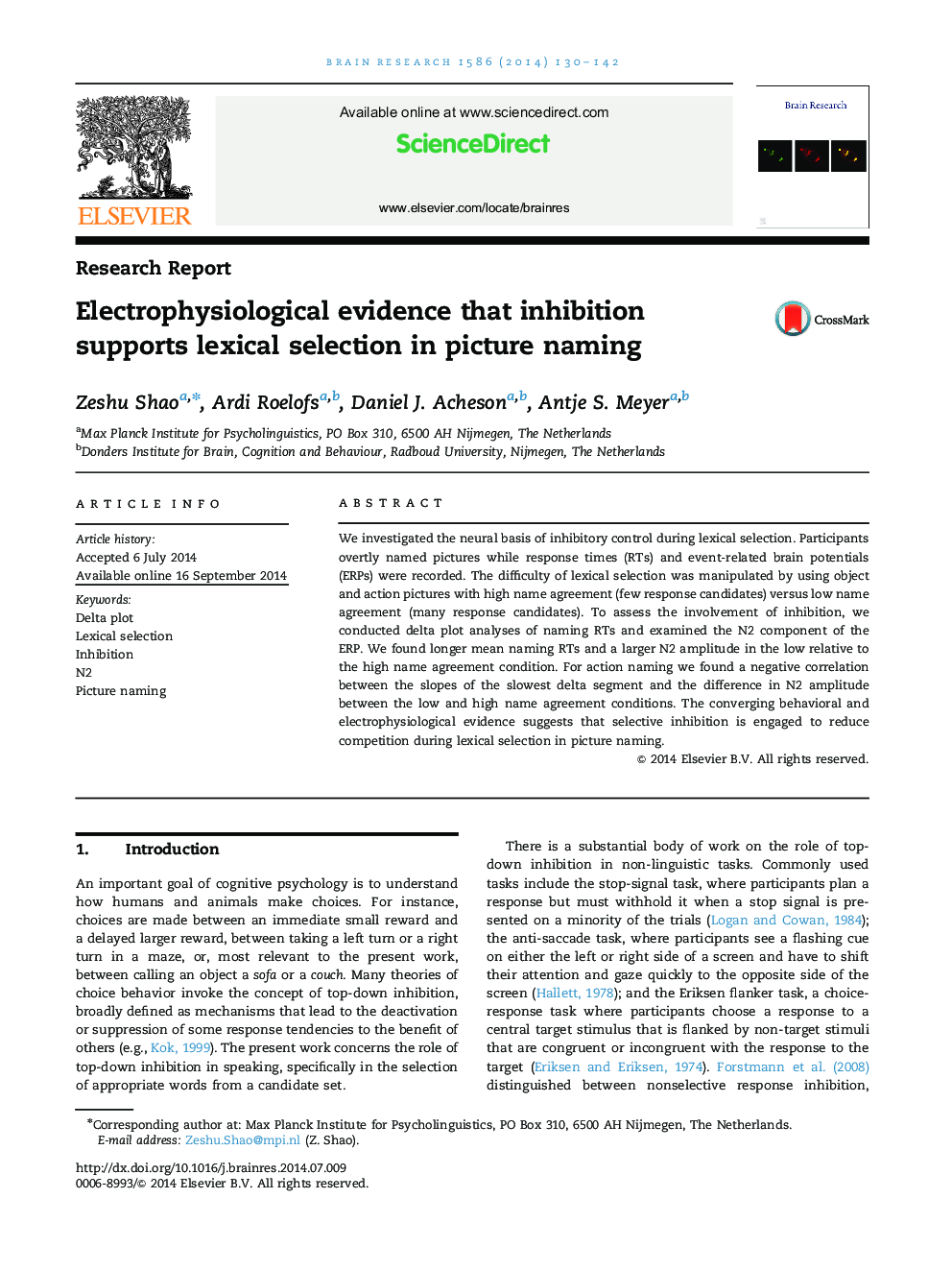| Article ID | Journal | Published Year | Pages | File Type |
|---|---|---|---|---|
| 6263247 | Brain Research | 2014 | 13 Pages |
â¢Involvement of top-down inhibitory control during lexical selection.â¢Pictures with low name agreement increase the difficulty of lexical selection.â¢Larger frontal N2 ERP component in low than high name agreement.â¢Negative correlation between delta slopes and name agreement RTs.â¢Negative correlation between delta slopes and N2 ERP effect.
We investigated the neural basis of inhibitory control during lexical selection. Participants overtly named pictures while response times (RTs) and event-related brain potentials (ERPs) were recorded. The difficulty of lexical selection was manipulated by using object and action pictures with high name agreement (few response candidates) versus low name agreement (many response candidates). To assess the involvement of inhibition, we conducted delta plot analyses of naming RTs and examined the N2 component of the ERP. We found longer mean naming RTs and a larger N2 amplitude in the low relative to the high name agreement condition. For action naming we found a negative correlation between the slopes of the slowest delta segment and the difference in N2 amplitude between the low and high name agreement conditions. The converging behavioral and electrophysiological evidence suggests that selective inhibition is engaged to reduce competition during lexical selection in picture naming.
